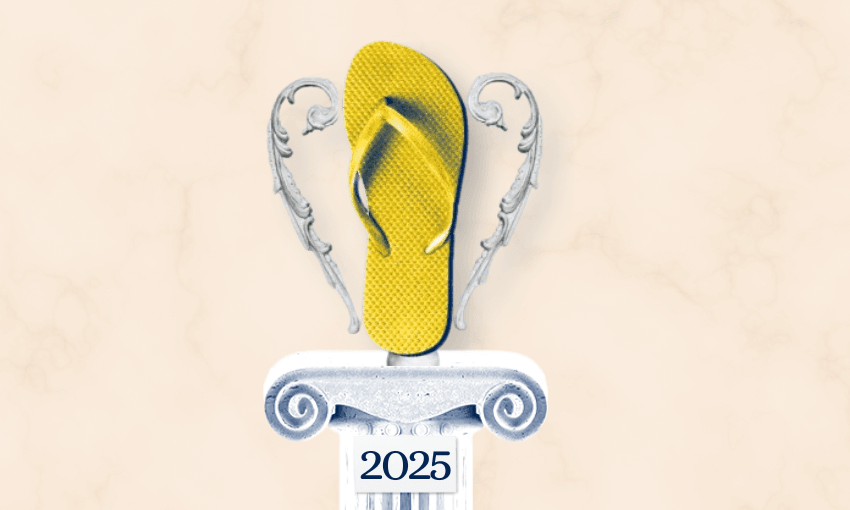In a momentous political bombshell, John Key has announced he’s standing down as PM. Some early, shell-shocked thoughts from Toby Manhire…
It is one of the hoary rules of politics that leaders never – almost never – go of their own accord. But John Key, not for the first time, has proved his resistance to the forces of political gravity, announcing this afternoon that he will exit on his own terms. “For me this feels the right time to go,” he said. Already the conspiracy theorists are in full flight, but there is no evidence to suggest he is doing anything but that: Going on his own terms, sitting as strongly as ever, a year out from the next election. He’s only 55. A spring chicken in political terms.
Key said he “feels like I am going out on top”, that he had “never seen myself as a career politician”, that he “didn’t want to find myself in the position many leaders around the world find themselves, which is disgruntled and unhappy.”
Some media are reporting that he’s leaving “for family reasons”. But while he did say he’d made sacrifices on that front, and family was “a factor”, this wasn’t a “spend more time with my family” exit, or not with that euphemistic freight.
#BREAKING: New Zealand PM John Key announces surprise resignation for family reasons pic.twitter.com/UpIZZuOWyl
— China Xinhua News (@XHNews) December 5, 2016
The National Party under Key has been lauded, rightly, for its ability to renew, with underperforming MPs finding themselves nudged out, or shouldered towards retirement. But now the prime minister has performed the biggest renewal of the lot. “To be blunt, I’ve taken the knife to some other people, and now I’ve taken the knife to myself.”
And he kept the knife perfectly concealed, too: there were no leaks, there was barely any speculation about his future. It is difficult to overstate, really it is, just how unusual what has just happened – hardly ever do political leaderships end this way.
Key, who has been in parliament for 14 years and last week marked 10 years as National leader, eight of those as PM, gave the legacy drafters a few tips by mentioning some of the main events in his premiership: the global financial crisis, the Christchurch quakes, Pike River, the Rena disaster. He said he was proud of his record on race relations, and “trying to help vulnerable New Zealanders”, despite some of the advice he received to swerve right. Among the regrets, the stalled TPP and the flag referendums.
While acknowledging that his own brand has been central to winning three consecutive terms, in a press conference in the Beehive theaterette, Key insisted that “change can be a very healthy thing”. He made it very clear, too, whom he felt should succeed him: Bill English. We’ll no doubt find out soon whether the likes of Judith Collins, Steven Joyce or Paula Bennett will consider standing against what Key called “the most utterly loyal deputy prime minister New Zealand has ever seen”.
Realistically, that pretty much seals it for English: it is hard to imagine any serious challenge given Key’s full-throated endorsement. Whether English performs more than a kind of caretaker role is another matter. Key said he was leaving a caucus that is “capable, committed and cohesive”, which is largely true – barely ever have the ideological and personal differences among National MPs erupted into public view. Whether or not that can hold as factions flock and favours are called in is another matter entirely. Certainly, the terms of the contest next year just changed dramatically: who would have thought that the leadership of the National Party would be more of a talking point than the leadership of Labour?





